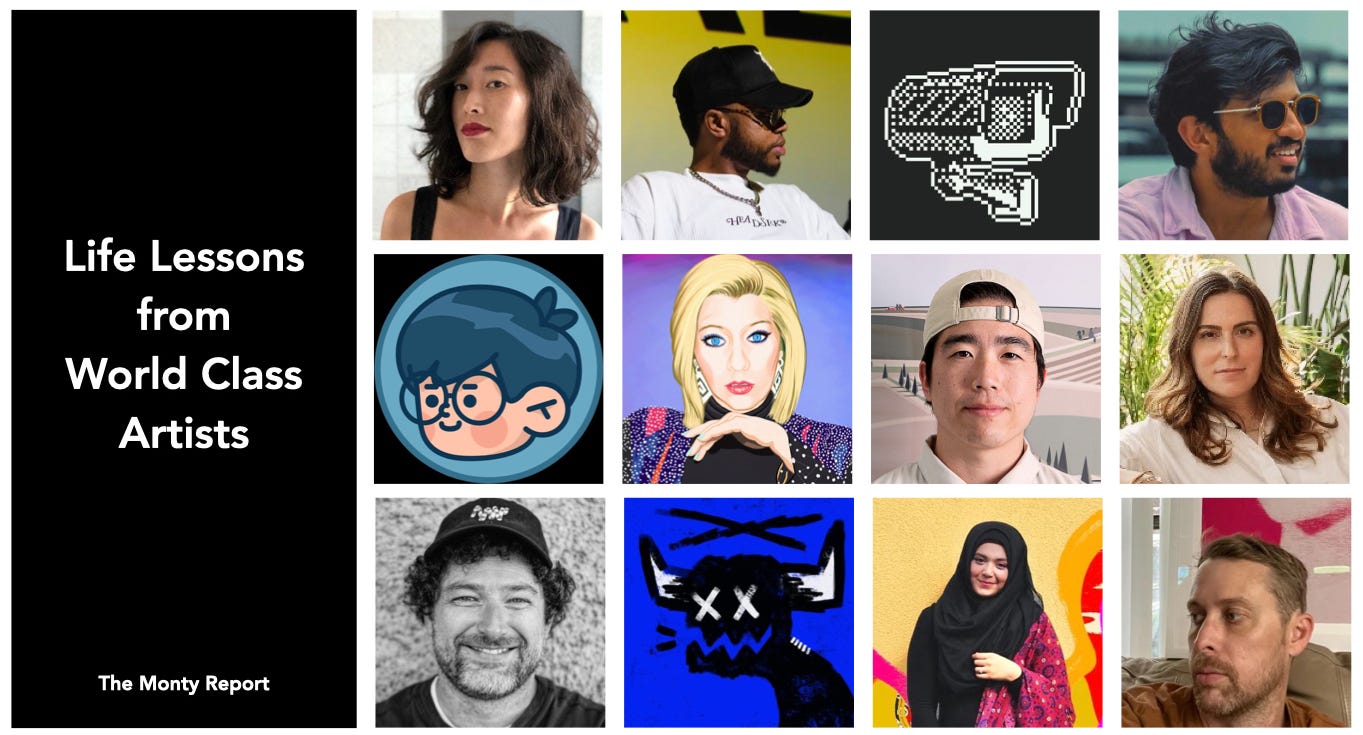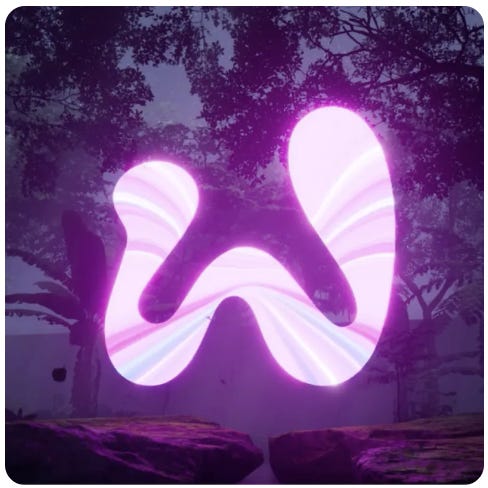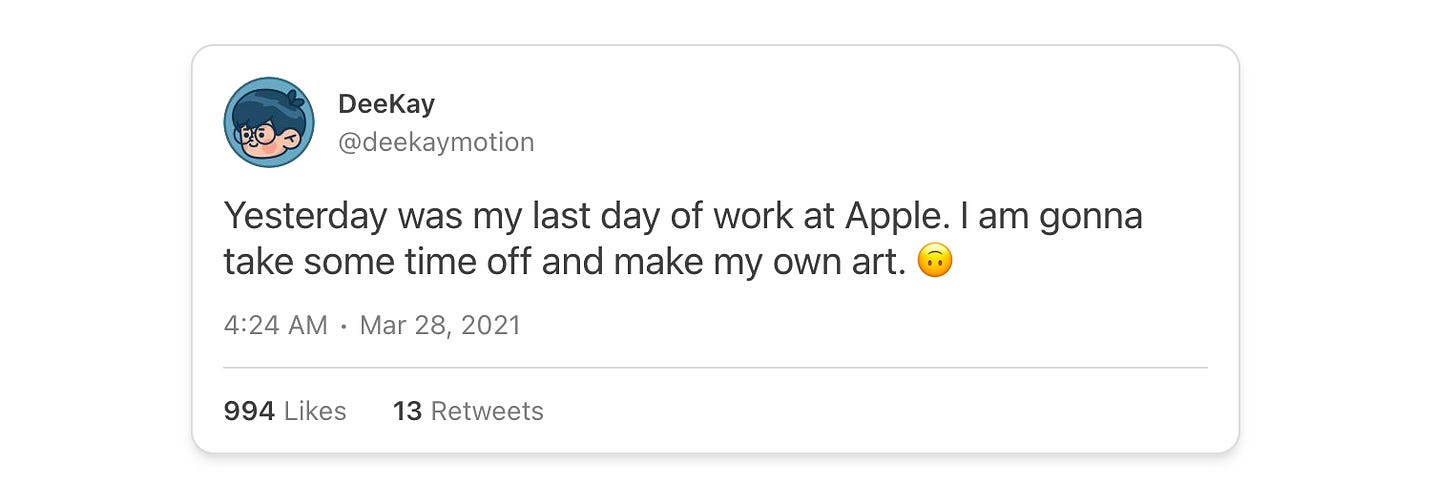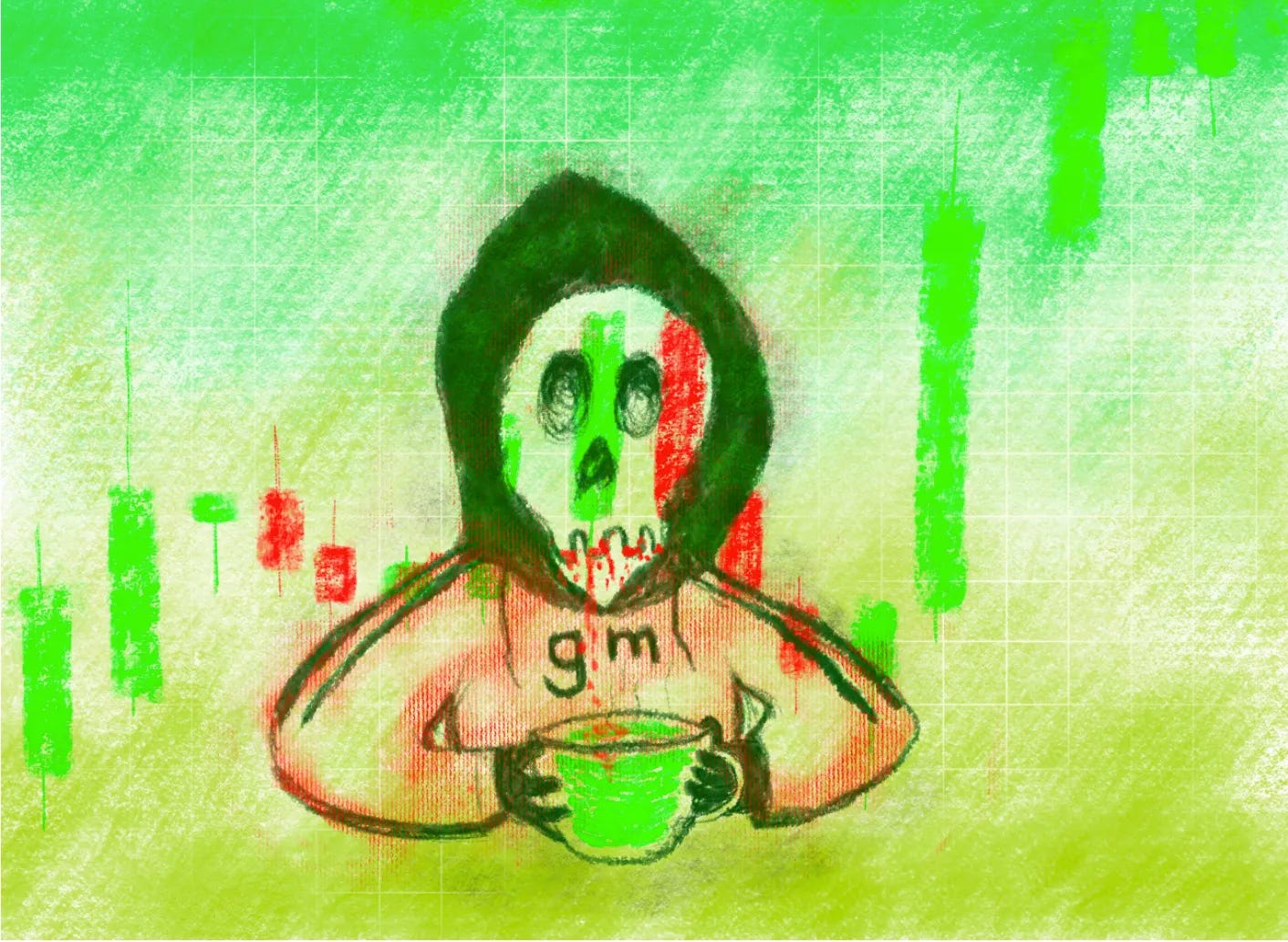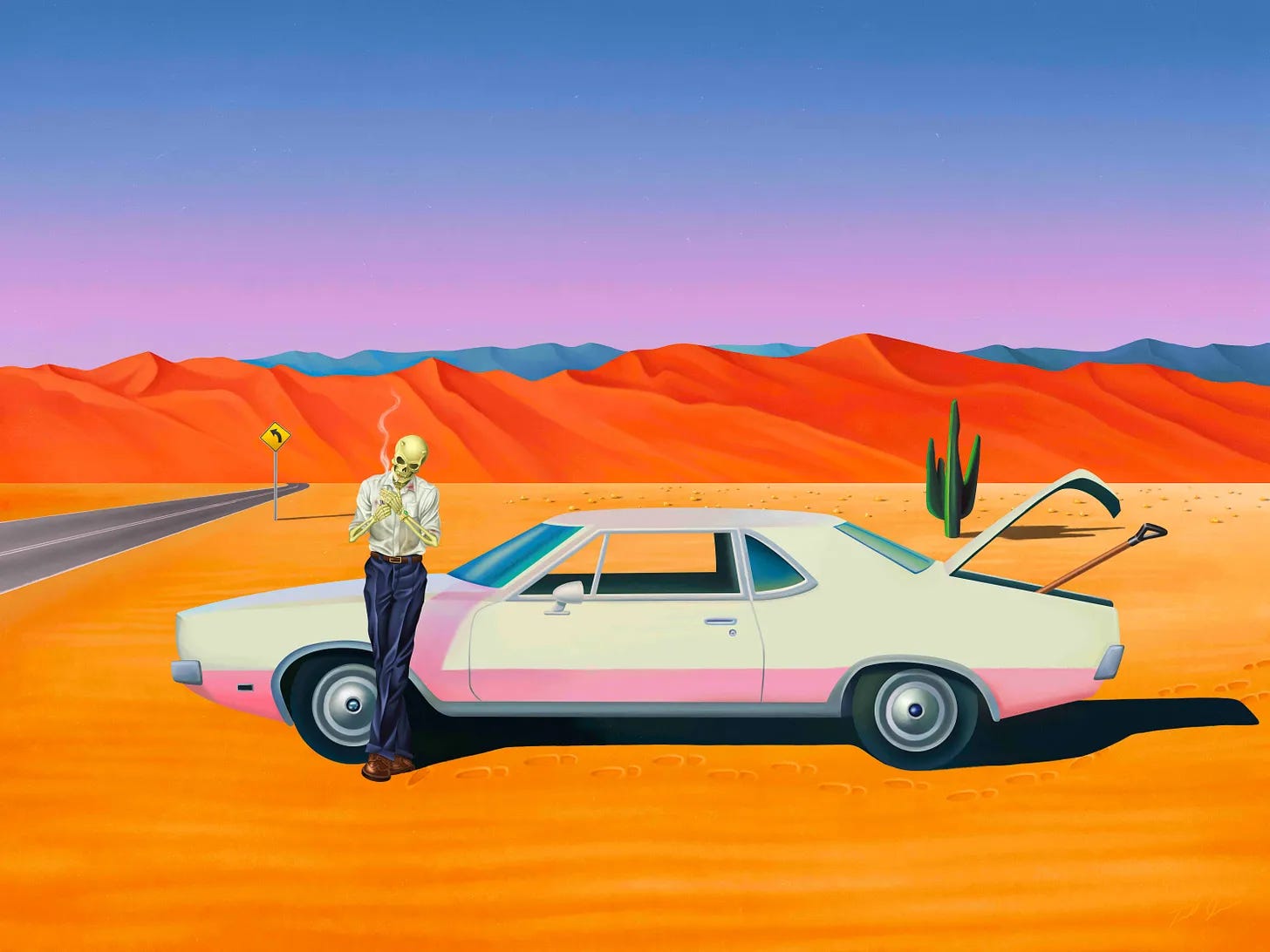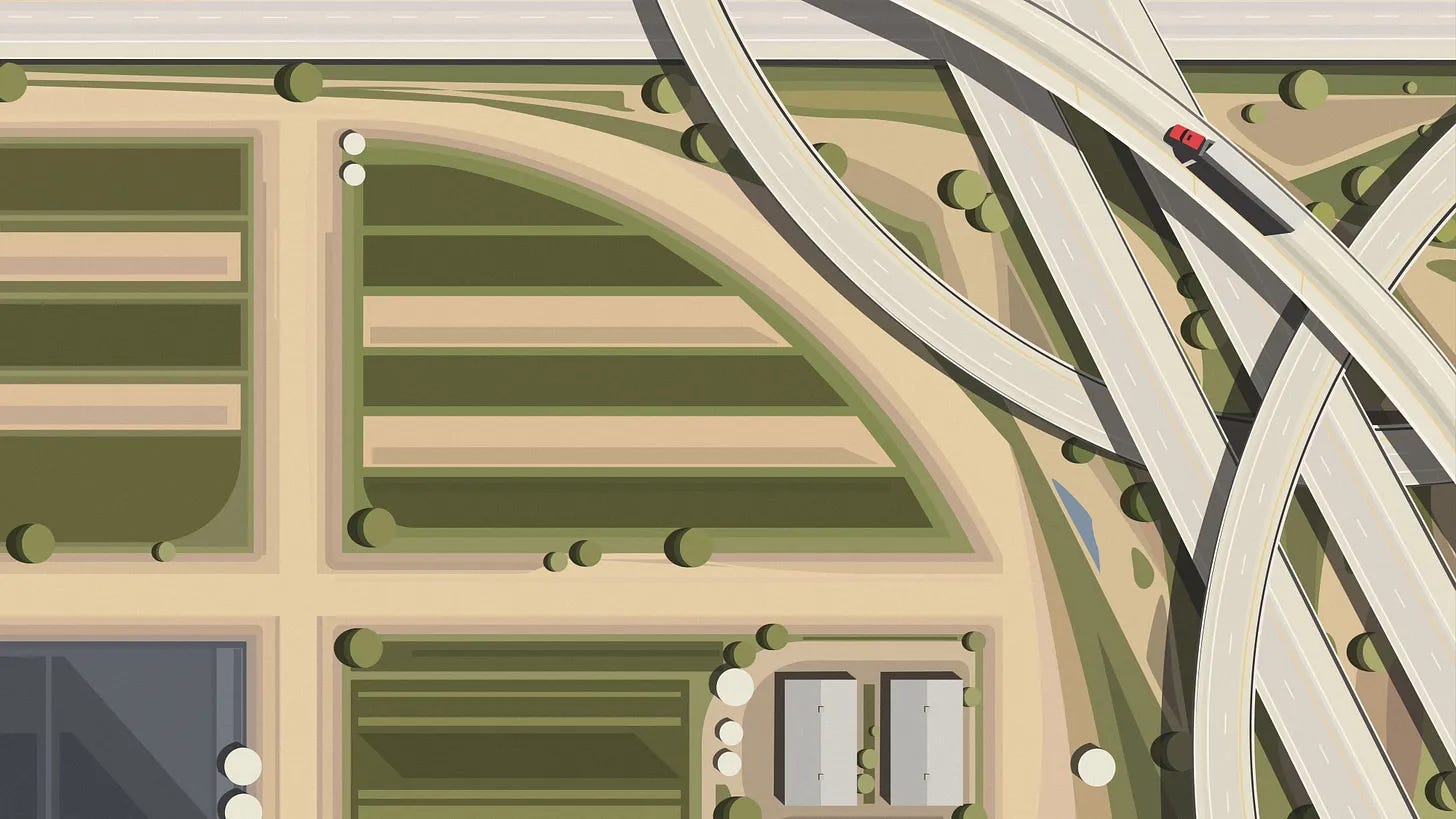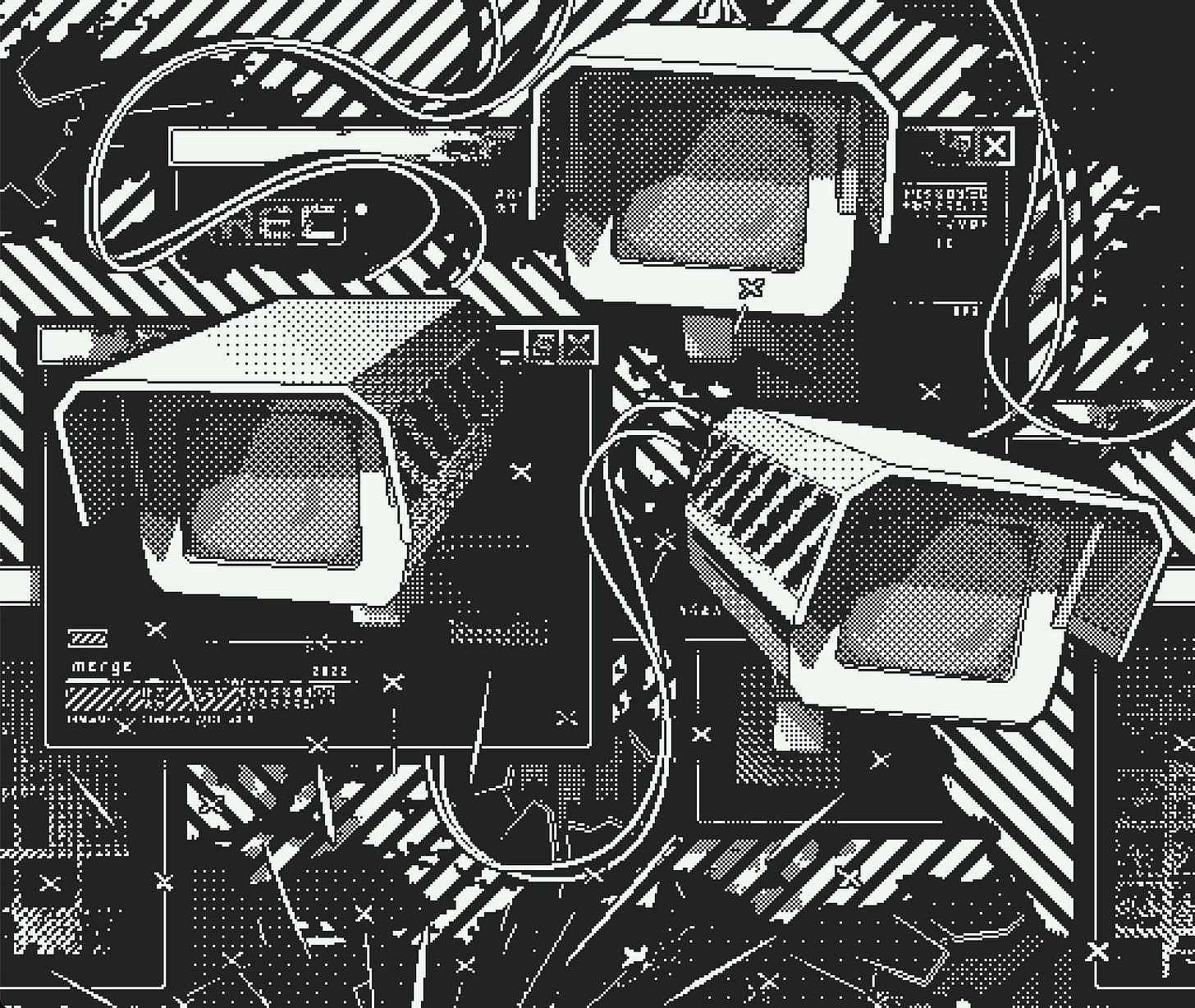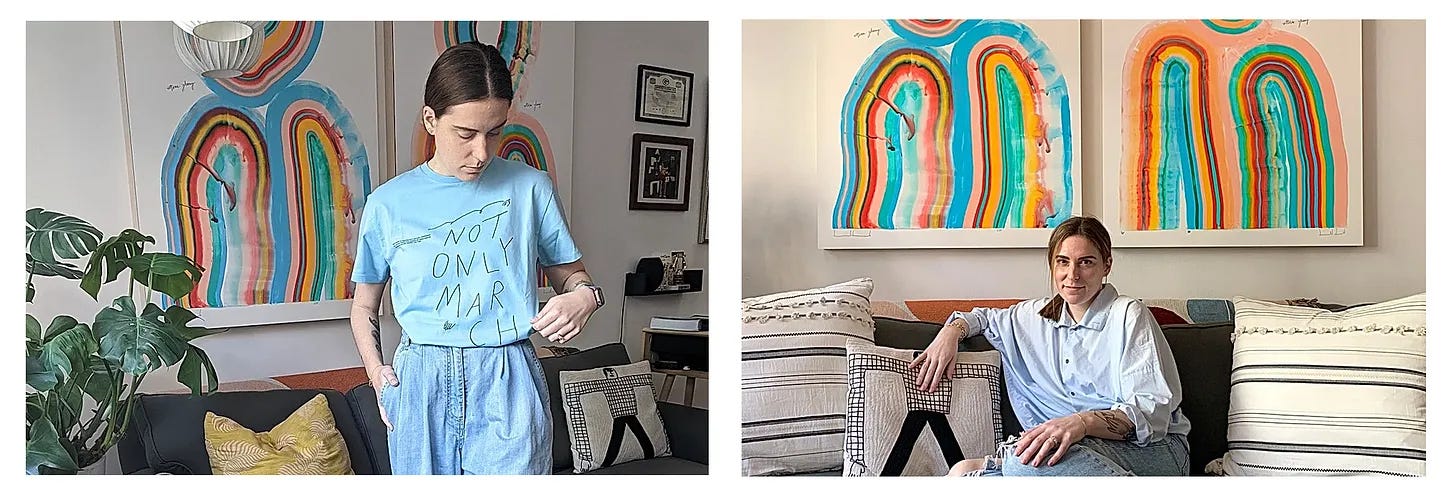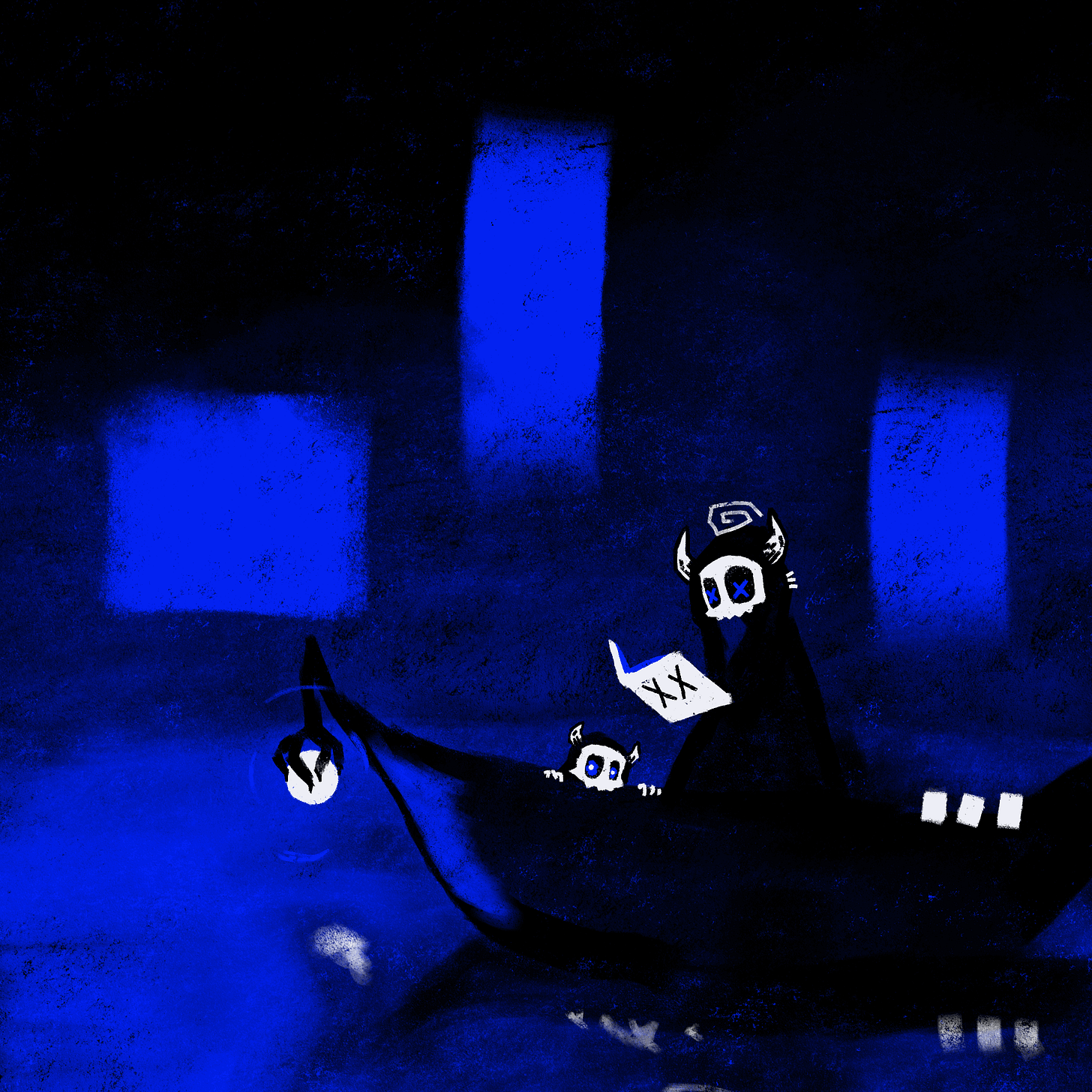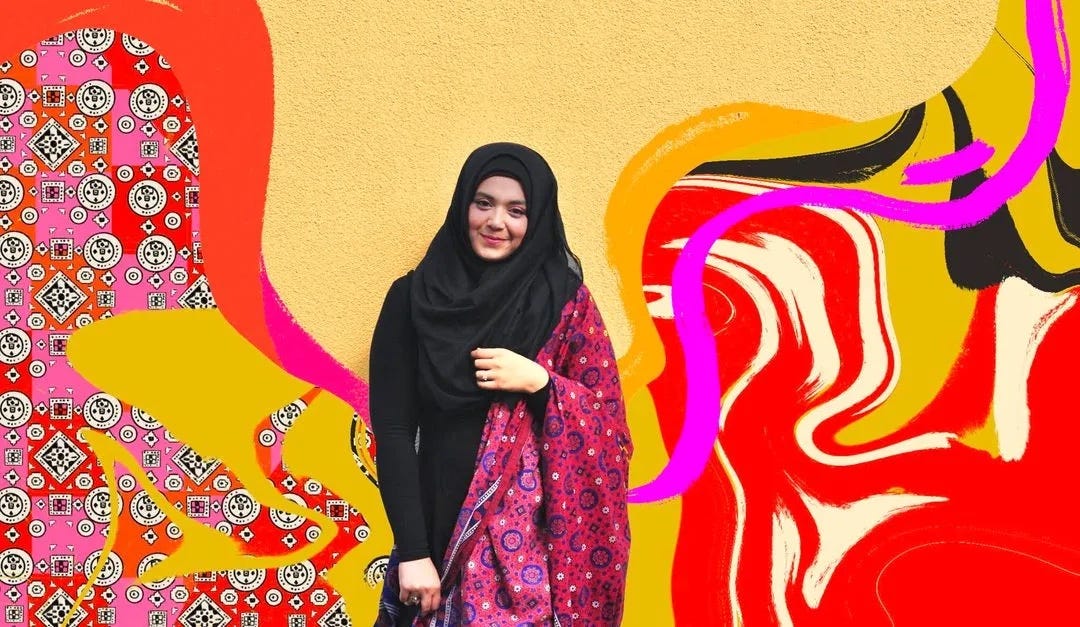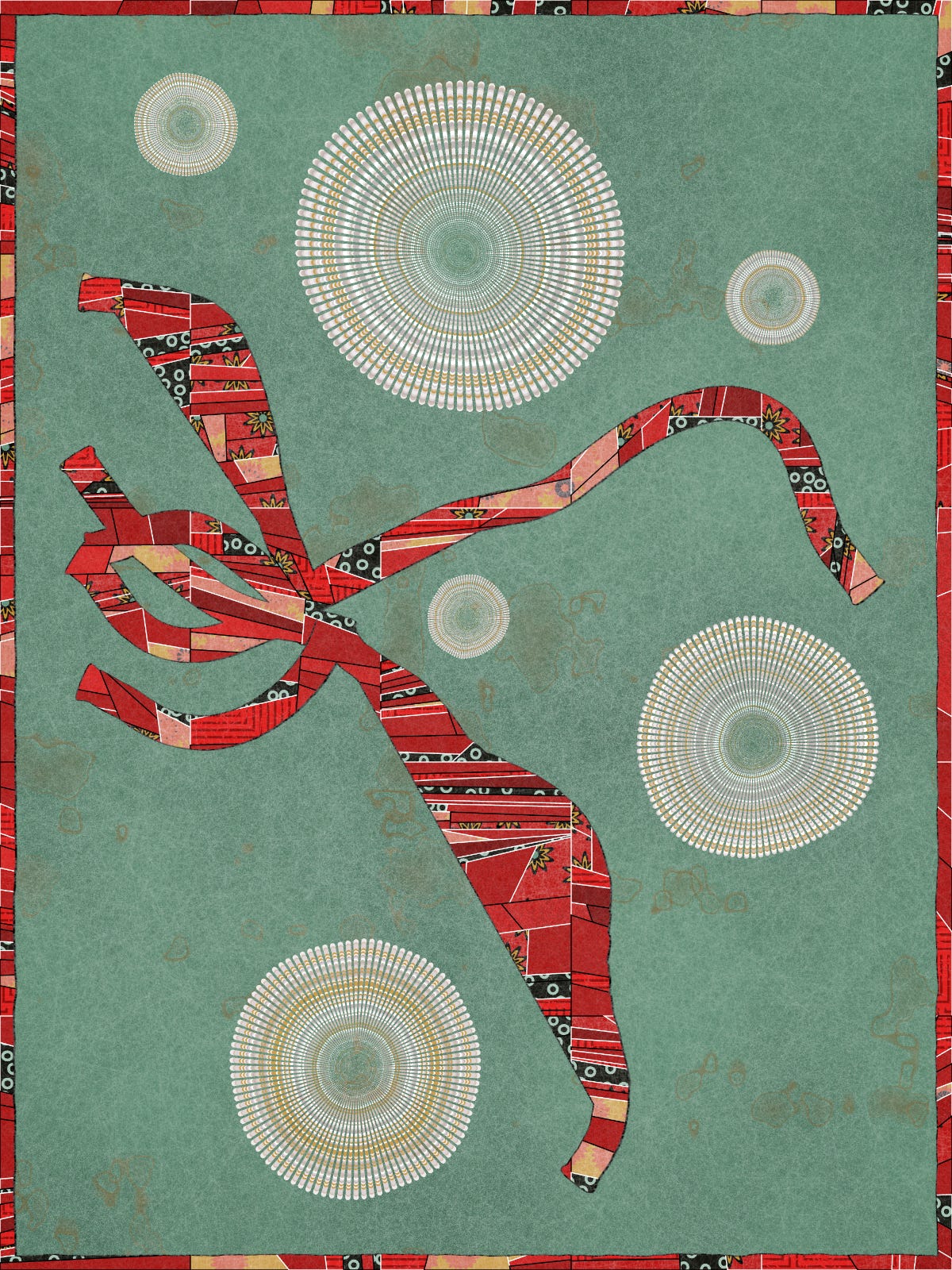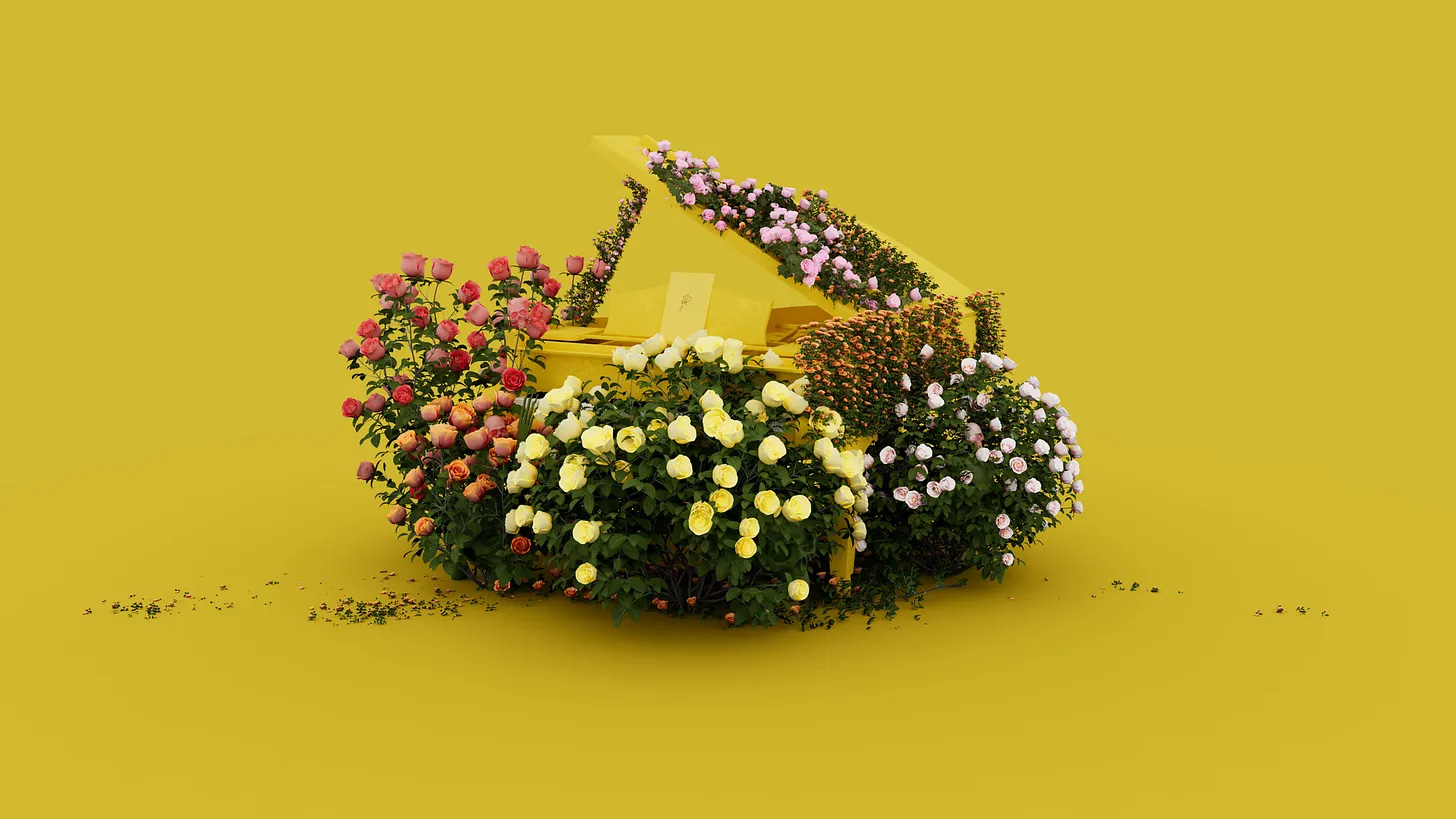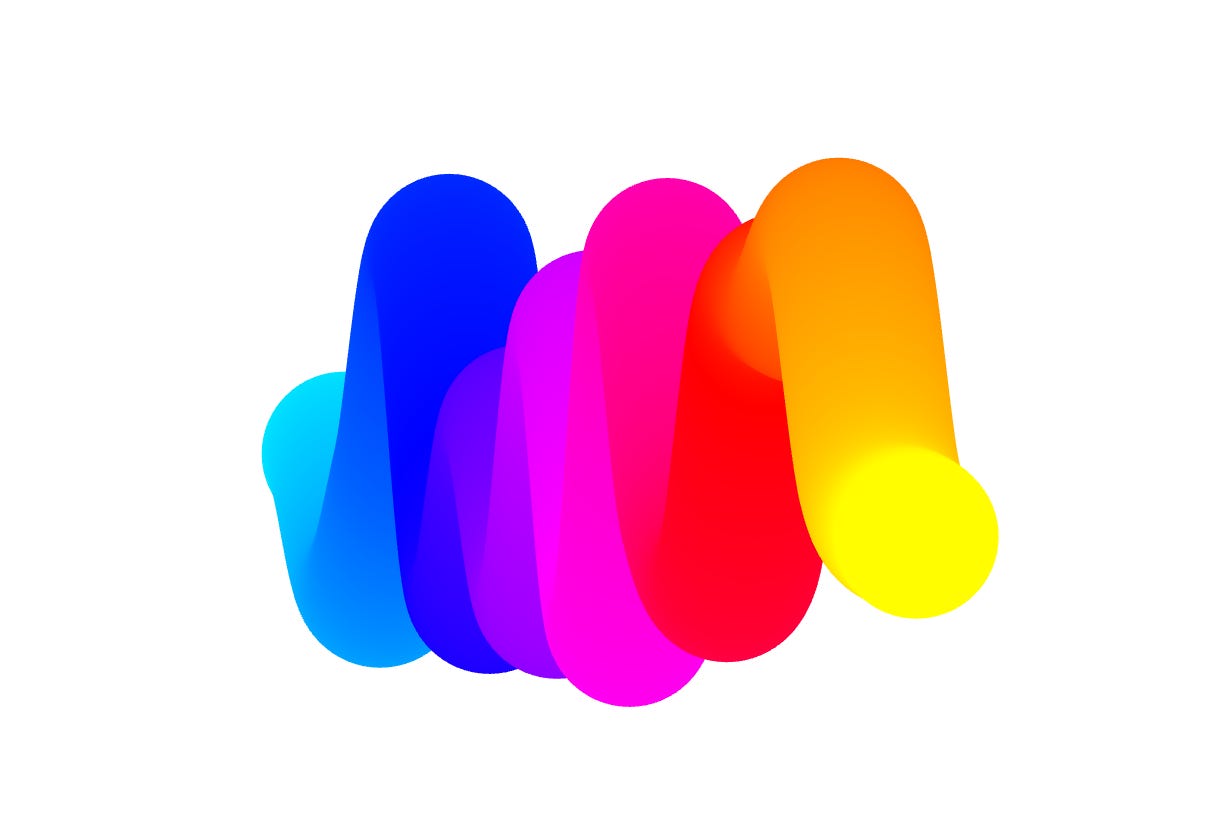12 Life Lessons From Artists I've Interviewed
Timeless Wisdom from Digital Art Luminaries
Hello my friends!
Over the past year and a half I have interviewed some of the wisest and most creative people in the digital art space.
Good wisdom never goes out of style, so I decided to dig into the archives to find some of the best insights and advice from my artist interviews.
Whether you are an artist/creative, an entrepreneur, a student, an investor, a parent, or a W2 employee, the lessons in here are broadly applicable.
I recommend that you read these lessons, and then, in the words of Bruce Lee, “adapt what is useful, reject what is useless, and add what is specifically your own.”
Read on for wisdom from DeeKay Kwon, Sarah Zucker, OSF, Terrell Jones, Grant Yun, Ripcache, Amber Vittoria, Des Lucréce, Maliha Abidi, Emily Xie, ACK, and Erick Calderon.
In service,
Monty
This issue of Art Life Money is brought to you by my partners at Wild.xyz.
Please read to the bottom of this section for an announcement about their very unique drop tomorrow, including information about their allowlist.
Wild is the community where you can create, collect, and explore experiential art.
Wild (@wildxyz on Twitter) makes it possible to:
Collaborate with boundary-pushing creators in their application-based artist residency
Collect curated experiential art on their platform
Experience immersive works produced by Wild
I’m excited to share an allowlist opportunity for Wild’s drop this week:
Bubble by Santiago Grau is a collection of 200 generative dynamic NFTs. Each piece in the collection is an on-chain binary state artwork. On mint, an "alive" bubble is generated. If transacted again earlier than its resiliency value the token will burst. The state of each token is stored on its contract and represented visually.
You can register for the allowlist for this collection using my Premint link. If you are selected, you will be able to mint one of the 200 pieces for 0.08 ETH.
This collection is launching TOMORROW, Wednesday, 7/19.
12 Life Lessons From World Class Artists
1. There is no right moment to take the leap
I learned from DeeKay Kwon that if you wait for the right moment, it will never come. He told me that his biggest regret of his twenties was not quitting his corporate job sooner. “I spent way too much time doing work for others when I should’ve spent more time doing work for myself. I am proud that I have my own style of art but I feel like I could’ve started that way sooner.”
2. Creation and relationships are the antidotes to dread
Sarah Zucker has danced with existential dread for much of her life. Like many of us (including me), she has a deep fear of death. She once wrote on Instagram that “I know I shouldn’t be afraid, but in a very base primal way I fear death, and the passing of time and the decay of all things and the loss of everything I love.”
For Sarah, two of the antidotes to dread are creating and investing in relationships. “Aside from creating, the best relief I find is companionship,” she told me. “Having friends and loved ones you can talk and laugh and dance with is immensely soothing to the soul.”
I suspect that these antidotes might be broadly universal. Make things. Invest in your relationships. You will feel better.
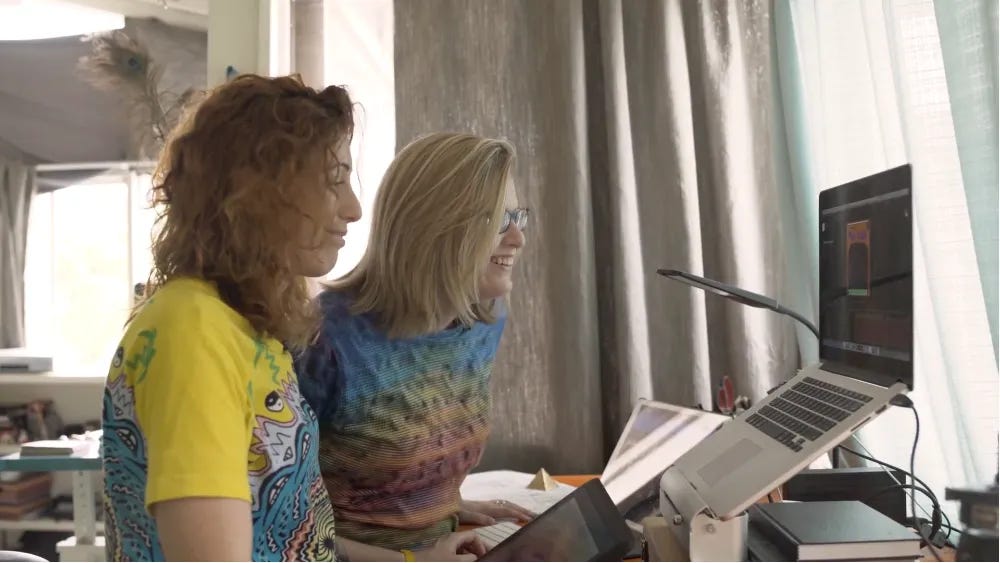
3. Know your game and manage your risk
Ovie Faruq AKA OSF taught me the power of knowing your game before you step into the arena. “Every time we buy or sell NFTs or crypto or whatever it is, I have a game plan in my head,” he says. “I know what levels I'm buying at. I know what levels I'm selling at. I'm not chasing higher prices, I'm not selling at lower prices.”
Knowing your game — when to enter, when to exit, when to change your mind — is a centerpiece of a good risk management structure. As they say, the number one rule is to survive. OSF is a master at survival, and the entire interview is worth re-reading.
4. Your art won’t sell itself
Artist Terrell Jones knows from first hand experience that no matter how good of an artist you are, the harsh truth is that your art won’t sell itself. When you sign up to be an artist, you are signing up to run a company of one.
In other words, if you want to make it in the art world, you can’t just do art. You have to be a full stack entrepreneur who is charge of marketing, social media, operations, finance, strategy, and innovation.
“I minted my first piece on Foundation in March 2021 and that piece sat for at least four months, maybe more,” recounted Jones. “What I didn't realize at that time was that you needed to build a community around your art”
But at the same time, you must resist the urge to cater too much to the community that you are building. Jones told me that his advice to newcomers to the space is to “Keep your narrative. Keep your story. Just know why you're doing things. Just know yourself.”
5. Bored people are boring. Find beauty in the mundane.
When I was a kid, occasionally I would gripe about being bored. “I’m bored! Let’s do something else.” Whenever I said this around my grandmother, she had the same response: “If you’re bored, you’re boring.”
As a 7 year old, I didn’t understand what she meant. But now I wholeheartedly agree. I think that artist Grant Yun would agree as well. During our interview, he reminded me of the value of finding beauty and intrigue in everyday activities.
“I genuinely enjoy driving,” he told me, “It literally doesn't matter where I'm driving, even if it's the same route I take every day. There's always something I see on the road that strikes me - maybe it's someone standing there and walking around, or maybe the weather that day is extra foggy or extra bright, or anything really.”
This is such a good lesson. Traffic doesn’t make you frustrated. Only YOU can make yourself frustrated. Sit back and enjoy the ride. It will be over before you know it.
6. Great art is about more than just aesthetics
During our interview, the anonymous artist Ripcache described what he hopes to achieve with his art.
“To try to understand and critique my place in time.”
This is a simple but powerful lesson that art is about a lot more than just aesthetics.
Ask yourself: What are YOU trying to achieve with your art? How is that reflected in your practice?
7. Be deliberate about your business structure and taxes
Artist Amber Vittoria is simultaneously very whimsical and very practical.
During our interview, she dispensed some very practical advice for artists who are thinking about how to structure their business and manage their taxes:
A big reason for my S-Corp election was to save on taxes. But also, long term, if I do want to hire somebody to help me, that will be a lot easier to manage since I already have payroll set up and I am doing bookkeeping.
In terms of how I keep track of my income, that hasn't changed. I use QuickBooks because that's what my new accountant likes to use. But I also keep a personal spreadsheet where I have all of my clients listed on there, when I invoice them, and when an invoice is paid.
Then, with NFTs, every time I make a sale, I convert my ETH through Coinbase to USD, and I mark that as income in my spreadsheet.
I used to update my spreadsheet monthly. And then I realized the stress of doing it monthly was a lot. So now I have quarterly tabs on my spreadsheet. And then I do the same thing with expenses. [She also pays taxes quarterly.]
There are a few apps I've used in the past like Expensify. But right now I have QuickBooks and one credit card for all my business expenses.
That's how I keep organized. I'm assuming if you're a bigger operation, then it'll probably be a little more complex than that. But I just try to keep on top of myself as much as possible and I try to stay organized.
8. Life is a series of obstacles. Expect them.
This lesson comes from my conversation with pseudonymous artist Des Lucréce, but it really comes from his mom.
Des told me that one of the biggest lessons he had learned from his mother is that “life is what you make of it, regardless of the obstacles that come your way.” Keep in mind that this advice is from a woman who lived through the Vietnam war, raised Des as a (mostly) single mom, and who worked tirelessly to provide a life for Des.
At a separate point in our interview, while reflecting on the death of his father, he told me that “Life is a cycle of highs and lows — the seasons pass and time keeps moving forward. Life is worth living because our time here is finite, and the moments we remember are what make our short time here special.”
The entire interview is packed with wisdom.
9. By giving people the benefit of the doubt, you also win
Maliha Abidi was born in Pakistan and moved to America when she was teenager. When she arrived, some of her American classmates at her new school would make fun of her accent and mispronounce her name. When I asked her about this experience, I was struck by how she handled it:
“I don't think they had malicious intentions,” she told me. “I think most of them were genuinely curious because they weren't used to seeing people like me… there are still lots of people who don’t pronounce my name correctly. And I don't make them feel bad about it. I try to share it with them politely.”
Maliha could have been pissed off. She could have been resentful. She could have assumed ill intent. But instead she gave her peers the benefit of the doubt.
The key lesson here is not that she let them off the hook, but rather that by not dwelling on their intentions she was the one who was winning. Rather than wallowing or feeling depressed, she could move on with her life.
Give others the benefit of the doubt. It makes your life easier.
10. Schedule and protect distraction-free creative time
Artist Emily Xie is a full time artist, which means she is a very busy entrepreneur. “I often find myself meeting with gallerists, communicating with folks over DM, answering emails, fulfilling print orders, attending art events, and writing or speaking about my work.”
In the face of these wide ranging responsibilities, she reminds us of the importance of being very deliberate about creating space for distraction-free creative time: “While the business side of art can quickly become consuming, I find that it’s all well worth it once I get to sit down and enter art-making mode” she told me. “I just try my best to cordon off large chunks of distraction-free time for this so that I can enter that flow state that I so crave.”
Schedule your creative time. Turn off your WiFi. Leave your house. Do whatever you need to do to get into your flow. Your career (and sanity) depends on it.
11. Spend more time with your kids (and really BE there)
Alpha Centauri Kid has three daughters. I interviewed him right before my second daughter arrived into this world, so I asked him for his advice. This is what he said:
I think the best advice I can I give is to just spend more time with them. This is advice for myself too - to stop what I'm doing more and just try and be patient and be in every moment with them, because one day I'm going to desperately wish they were here to spend time with. Being more in the moment and more present is the best advice I could ever give anyone.
Living “in the moment” and “being more present” might be some of the most oft-repeated aphorisms of our time. That is for a reason.
Rather than breezing past this advice like you usually do, stop and consider how you might apply it to your own life today. Yes, today.
12. Just keep going: You can’t *think* your way to success. You have to DO things.
During my conversation with Art Blocks CEO and Artist Erick Calderon (AKA Snowfro), my biggest take away may have been how much of his success transpired because he just kept going.
He started multiple businesses in college. After college he started a long shot tile company and kept working at through multiple close calls with failure. After he began tinkering with code and learning about the blockchain, he spent years tinkering around before he landed on an idea for Art Blocks. Then, Art Blocks went through multiple iterations before it ended up being the platform we know today.
They key lessons here is that throughout his entire journey Erick was not sitting around just thinking about how to proceed, instead he just kept doing things, iterating as he went.
Learning by doing is more effective than learning by thinking.


